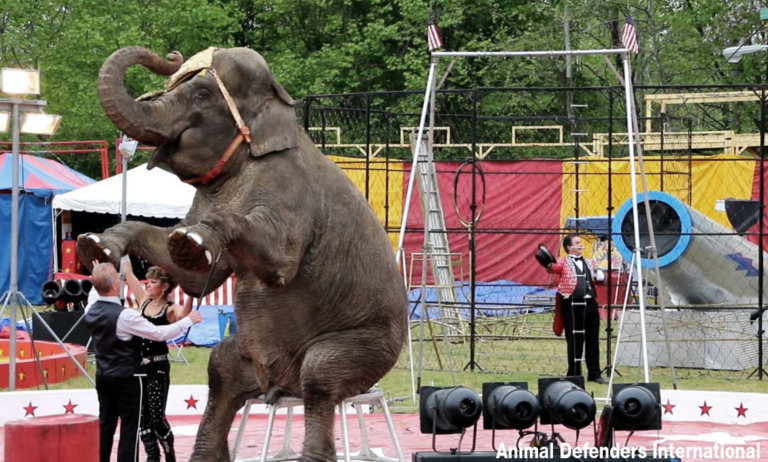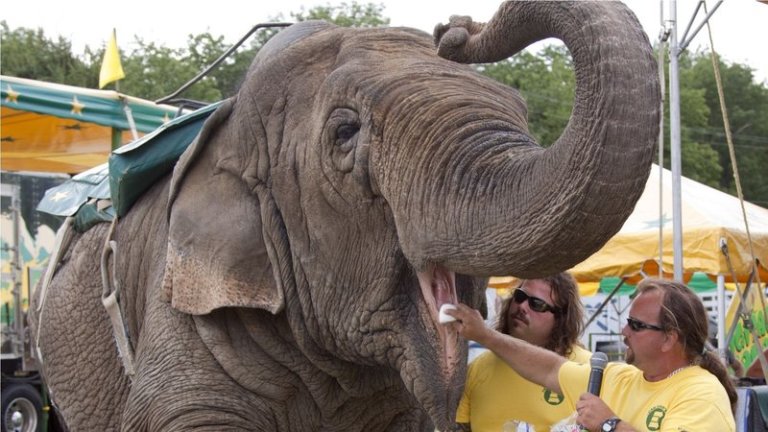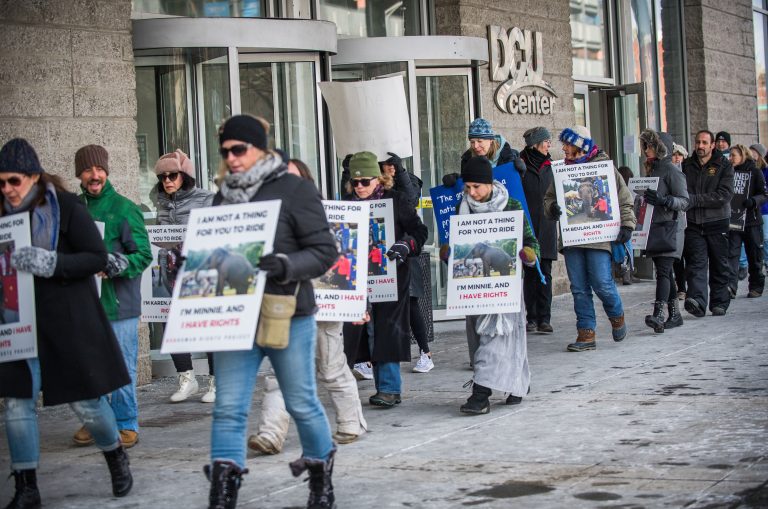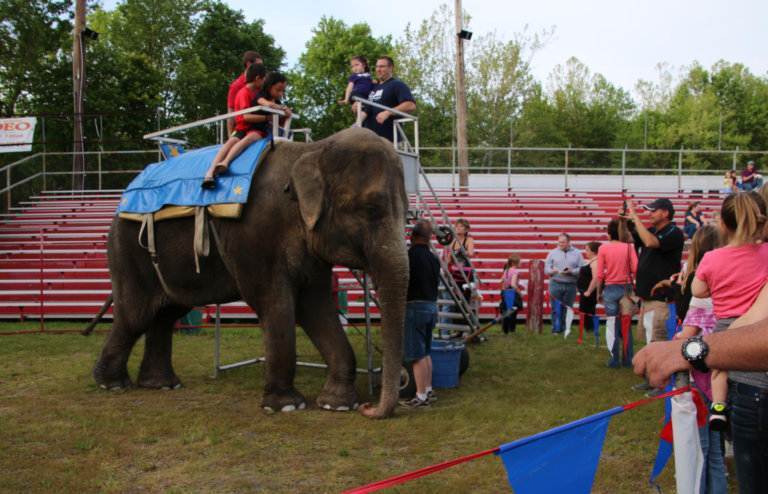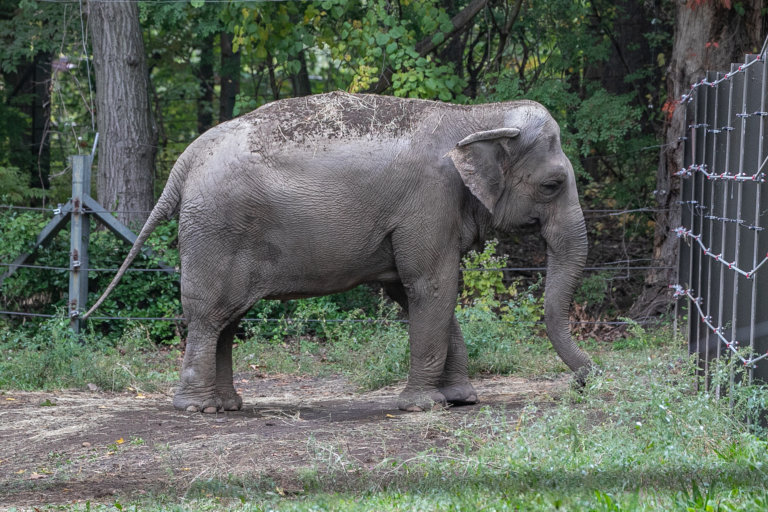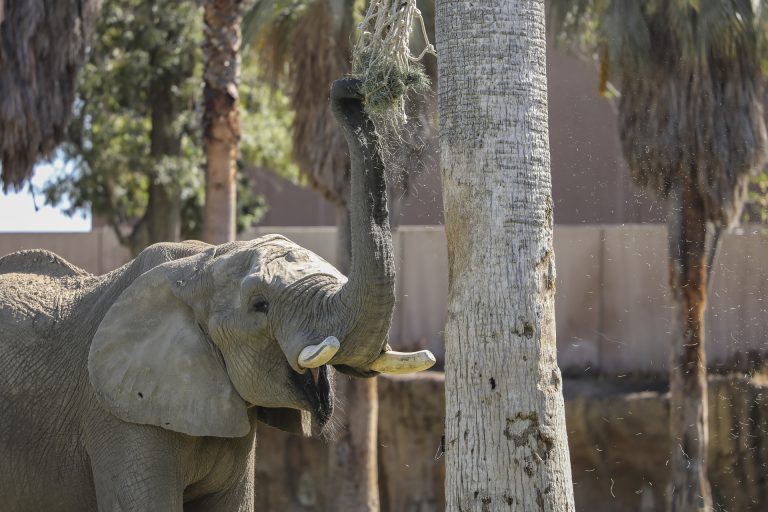Beulah, Karen and Minnie's story
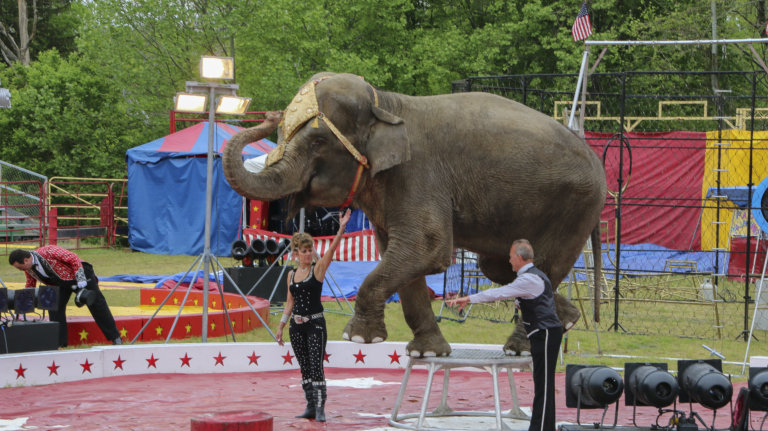
Beulah, Karen, and Minnie
Beulah, also known as Beulah Mae, was an Asian elephant who was born in the wild in Myanmar in 1967 and imported to the US sometime between 1969 and 1973. In 1973, she was sold to the Commerford Zoo in Goshen, CT, which frequently used her in circuses and fairs where she was power-washed (“complete with a gaggle of onlookers crowded around with lawn chairs, boxed lunches and soda”) and forced to give rides to children and adults, among other activities. The Commerford Zoo also used her in commercials and theatrical performances, including a 1981 production of the Connecticut Opera’s Aida staged at a sports arena. Beulah suffered for years from a foot disorder. On September 15, 2019, Beulah collapsed and died at the Big E fair in West Springfield, MA as a result of blood poisoning caused by a uterine infection.
Karen was an African elephant who was born in the wild in 1981 in an unknown location. Imported to the US by Jurgen C. Schulz—who ran an import-export business for exotic animals and now owns the Kifaru Exotic Animal & Bird Auction—Karen was sold to animal trainer Richard “Army” Maguire in 1984. Later that year, MaGuire sold her to the Commerford Zoo, which also frequently used her in circuses and fairs. Karen died in March of 2019 of kidney disease.
Minnie, also known as Mignon, is an Asian elephant who was born in the wild in Thailand and imported to the US in 1972 when she was two months old. Shortly after, Earl and Elizabeth Hammonds, in search of a baby elephant to incorporate into their traveling petting zoo, purchased her for $4,000 and transported her from Florida to their New Jersey home in a VW bus so she could become “the first elephant in the world to be raised as a member of a household,” as they write in their 1977 book Elephants in the Living Room, Bears in the Canoe. “To pay Mignon’s bills … Mrs. Hammond rents her for parties, sales promotions and Republican political gatherings. Averaging two bookings a week, Mignon just pays her way.” In 1976, the Hammonds sold Minnie to the Commerford Zoo, which frequently uses her in Indian weddings, film productions, photo shoots, circuses, and fairs.
Minnie has a history of attacking her handlers, injuring them and members of the public, including a 2006 incident in which, as PETA documented in a 2010 factsheet, “as children were being loaded onto the elephant, [Minnie] became agitated and suddenly swung her head toward the two employees, shifting her weight and pinning them against the loading ramp. An eyewitness reported that one of the employees had provoked the elephant by striking her in the face.” She is the only Commerford Zoo elephant who is still alive.
Donate to support the fight
Donate online
Mail a check
Planned giving
Create a fundraiser
Highlights from the fight
Media coverage
A timeline of Beulah, Karen, and Minnie’s case
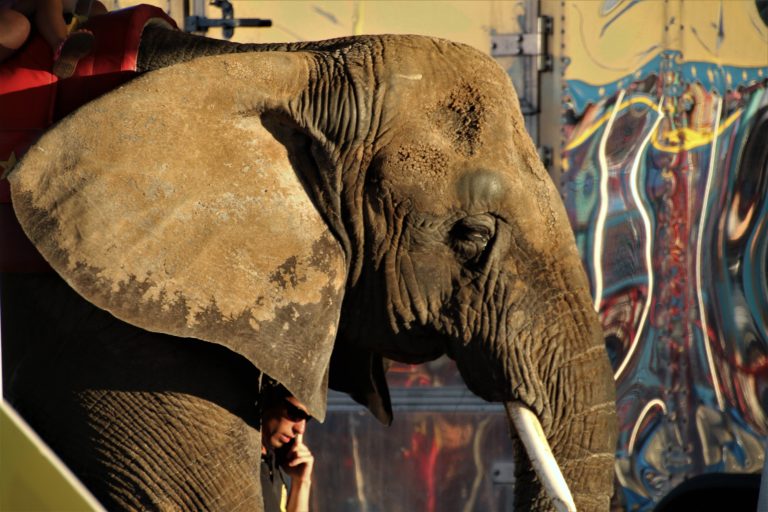
12.16.20
The NhRP announces we have decided to conclude our Connecticut litigation for the foreseeable future given the Connecticut courts’ continued unwillingess to engage with the substantive issues of Minnie’s case. Read our statement here.
6.3.20
The NhRP files a motion with the Connecticut Supreme Court, requesting permission to appeal the Appellate Court’s May 2020 decision.
7.7.20
The Connecticut Supreme Court declines to hear Minnie’s case.
5.14.20
The Appellate Court again denies habeas relief to Minnie. “The court’s continued assertion that in Connecticut a third party, such as the Nonhuman Rights Project, cannot bring a habeas corpus case that demands that an autonomous being who has long been considered to be a rightless legal thing should now be considered a legal person—able to have her right to bodily liberty asserted by that third party—not only contradicts almost two centuries of Connecticut law, but also the law of every English-speaking jurisdiction in the world,” writes NhRP President Steven M. Wise of the decision.
1.30.20
Amicus support

Relevant legislation about Beulah, Karen, and Minnie
